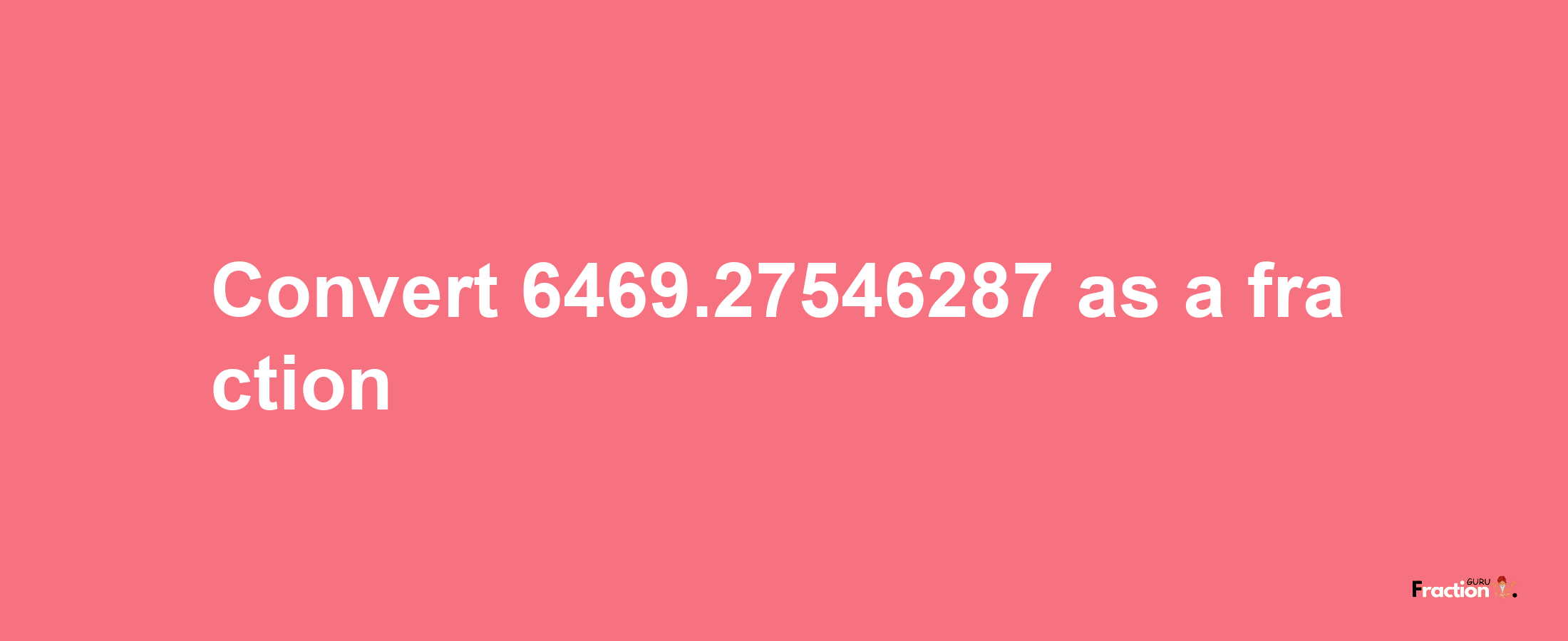Step 1:
The first step to converting 6469.27546287 to a fraction is to re-write 6469.27546287 in the form p/q where p and q are both positive integers. To start with, 6469.27546287 can be written as simply 6469.27546287/1 to technically be written as a fraction.
Step 2:
Next, we will count the number of fractional digits after the decimal point in 6469.27546287, which in this case is 8. For however many digits after the decimal point there are, we will multiply the numerator and denominator of 6469.27546287/1 each by 10 to the power of that many digits. So, in this case, we will multiply the numerator and denominator of 6469.27546287/1 each by 100000000:
Step 3:
Now the last step is to simplify the fraction (if possible) by finding similar factors and cancelling them out, which leads to the following answer for 6469.27546287 as a fraction:
71162/11 / 1


